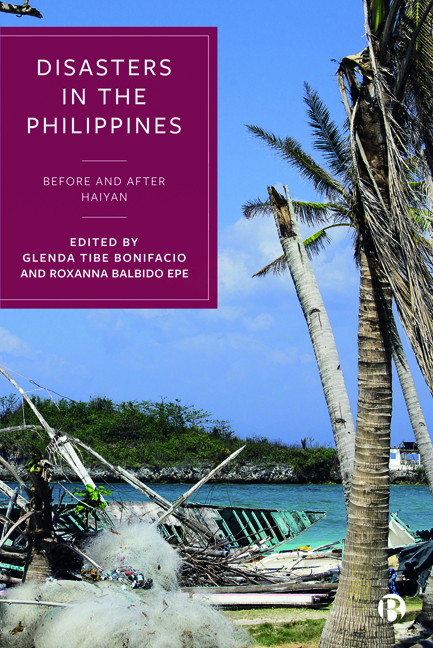12 - Climate Change and Applied Theater as Post-Disaster Response
Published online by Cambridge University Press: 18 January 2024
Summary
Being born and raised in the Philippines, I became aware of environmental disasters and destructions early on. I have witnessed images of mining activities that have devasted Indigenous lands. I have seen wretched pictures of the ocean with plastic and oil pollutants, landslides after typhoons, and flooded cities which constantly occupy the intermedial world of broadcast and print communications. Most of the time, these images of disasters pervade our lived lives. The words of Sheila Coronel (2014, 88), “our country's twin” aptly capture the intensity of Filipinos experience with disasters. I cite her words here as living echoes of my narratives of disasters that I experienced in a highly urbanized community constantly engulfed by perennial flooding. In an urban community, environmental destructions and weather events are entangled with socio-economic challenges. Growing up in an urban poor community in Quezon City, I witnessed how the lack of economic mobility forced certain communities to become impuissant and marginalized from civic political dialogues and social agency. Due to my lived experiences of poverty and lack of equal opportunities for people situated in the periphery of society, I began asking this question: “Bakit mahirap ang buhay sa lugar namin?” (Why are people poor in my community?). Like a ghost, this question in my young mind appeared intermittently in between direness and moments of possibilities. Amidst despairing situations, I was already curious about the possibilities of human empowerment through collective work. As someone who was introduced to theater at the age of nine, I have witnessed the potency of performance in gathering entities that contain their imaginations in a particular temporality and site. Provoked by my personal stories of disasters as critical positionality in examining climate change, applied theater, and local ecological knowledge, in this chapter, I illustrate the processes of applied theater as a post-disaster response in an island community that has a recent history of devastation by a strong weather event. Taken from my dissertation, “Applied Theatre as Post-Disaster Response: Re-Futuring Climate Change, Performing Disasters, and Indigenous Ecological Knowledge,” I aim to render stories of disasters and narratives on super typhoon Yolanda (known internationally as Haiyan)— the strongest typhoon ever recorded to hit the Philippines— that my collaborators from my field site entrusted me as a performative articulation of possible futures.
- Type
- Chapter
- Information
- Disasters in the PhilippinesBefore and After Haiyan, pp. 248 - 266Publisher: Bristol University PressPrint publication year: 2023



